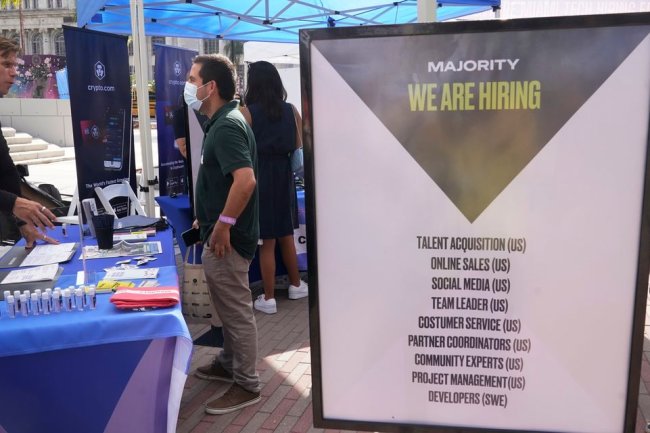303 Creative v. Elenis Is a Victory for Free Speech and Pluralism
The Supreme Court supports the right of a business to dissent from dominant cultural views. By The Editorial Board Updated June 30, 2023 8:00 pm ET People react outside of the Supreme Court on June 30. Photo: Mariam Zuhaib/Associated Press Most Americans support same-sex marriage, but an open question since the Supreme Court handed down Obergefell v. Hodges in 2015 is whether Americans running a business can dissent from progressive orthodoxies without punishment. The High Court resolved that tension on Friday with a 6-3 ruling in favor of the First Amendment, a decisive victory for American pluralism. In 303 Creative LLC v


People react outside of the Supreme Court on June 30.
Photo: Mariam Zuhaib/Associated Press
Most Americans support same-sex marriage, but an open question since the Supreme Court handed down Obergefell v. Hodges in 2015 is whether Americans running a business can dissent from progressive orthodoxies without punishment. The High Court resolved that tension on Friday with a 6-3 ruling in favor of the First Amendment, a decisive victory for American pluralism.
In 303 Creative LLC v. Elenis, the Court ruled in favor of Lorie Smith and her custom website business. The core question: Can a Colorado anti-discrimination law compel Ms. Smith to lend her creative expression to causes she doesn’t condone? Ms. Smith says her Christian faith precludes her from designing tailored websites for same-sex weddings. The Tenth Circuit Court of Appeals ruled that the state could coerce that speech.
Justice Neil Gorsuch corrects that mistake. “Colorado seeks to force an individual to speak in ways that align with its views but defy her conscience about a matter of major significance,” he writes for the majority. “As this Court has long held, the opportunity to think for ourselves and to express those thoughts freely is among our most cherished liberties and part of what keeps our Republic strong.”
Colorado’s logic, he adds, would “force all manner of artists, speechwriters, and others whose services involve speech to speak what they do not believe on pain of penalty.” By that standard a gay man could be coerced to create a mural promoting Christian views he finds abhorrent. The progressives decrying the decision may someday appreciate the Court’s protections, and they are shortsighted to assume their views will always be ascendant.
That’s one reason the decision should have been 9-0, and Justice Gorsuch shreds Justice Sonia Sotomayor’s dissent that “reimagines the facts of this case from top to bottom.” One falsehood is her claim that businesses now have “a constitutional right to refuse to serve members of a protected class.”
The Court isn’t offering a license to discriminate and dodge public accommodation laws. Colorado concedes that Ms. Smith is willing to serve customers regardless of sexual identity. She says she’ll happily design a website for a gay customer who wants to promote, say, an animal rescue. What she won’t do is promote causes that violate her conscience.
Justice Sotomayor would let government snuff out views the left dislikes. Her dissent, as Justice Gorsuch puts it, “is emblematic of an unfortunate tendency by some to defend First Amendment values only when they find the speaker’s message sympathetic.”
303 Creative is a cultural tonic the country urgently needs. The tolerance the left once sought for gays and gay weddings has become the coercion that forces dissenters from the dominant culture to bend the knee.
“Abiding the Constitution’s commitment to the freedom of speech means all of us will encounter ideas” that are unattractive or even hurtful, as Justice Gorsuch says. “But tolerance, not coercion, is our Nation’s answer.”
Wonder Land: The attorneys general of 19 states have sent a letter to JPMorgan Chase, accusing it of discrimination against conservative religious groups. The bank denies it. The business of America should become business again, not politics. Images: Zuma Press/Bloomberg News Composite: Mark Kelly The Wall Street Journal Interactive Edition
What's Your Reaction?













